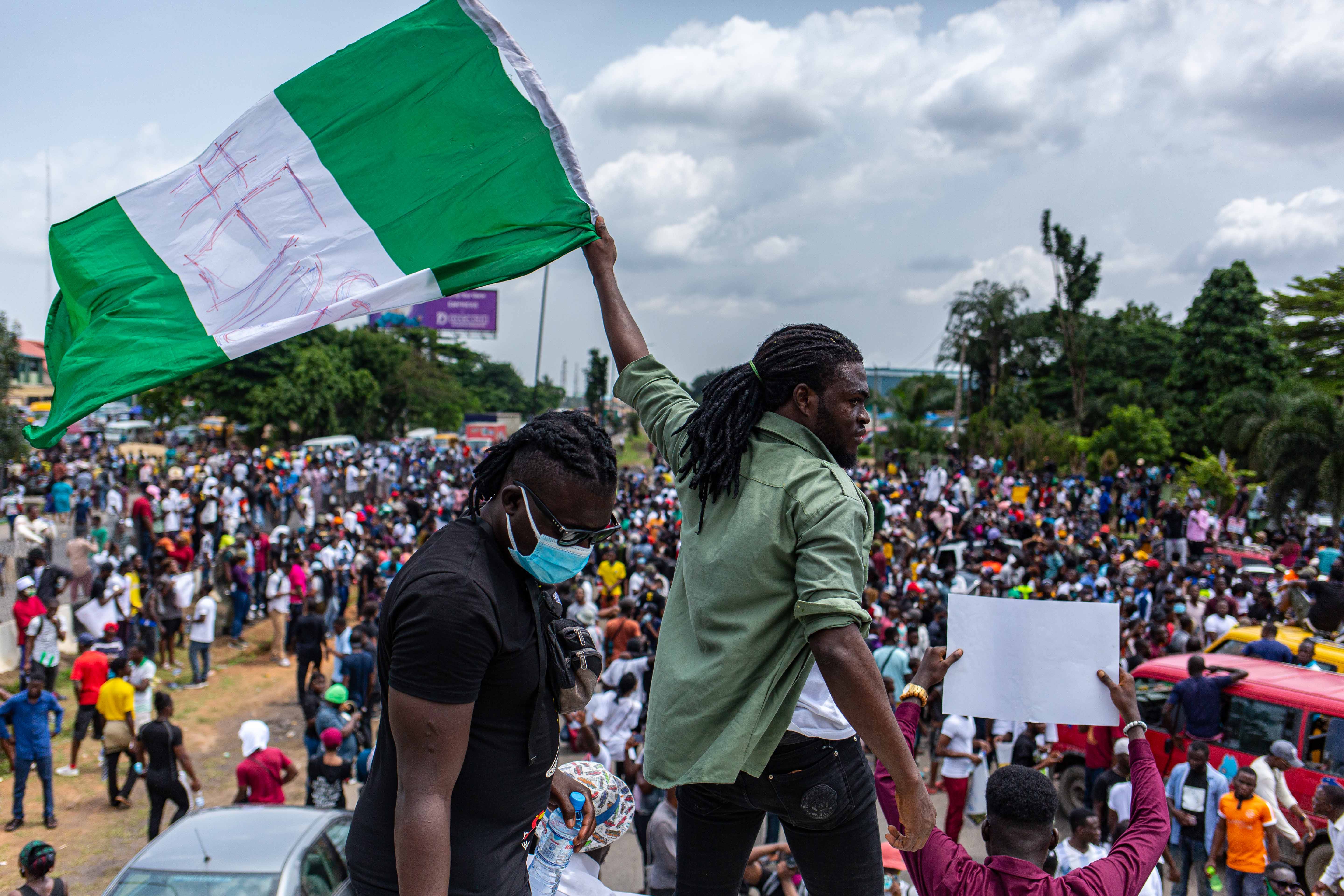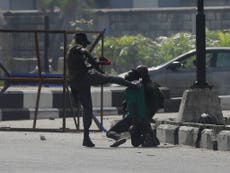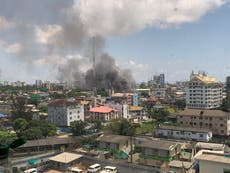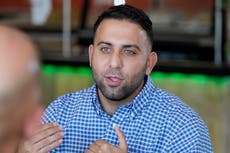It is time we woke up to the needs of ordinary Nigerians – we cannot waste this opportunity for change
One of the problems that has led to the recent protests across the country is a disillusioned youth, with zero opportunities. I know – I was one of them


Your support helps us to tell the story
From reproductive rights to climate change to Big Tech, The Independent is on the ground when the story is developing. Whether it's investigating the financials of Elon Musk's pro-Trump PAC or producing our latest documentary, 'The A Word', which shines a light on the American women fighting for reproductive rights, we know how important it is to parse out the facts from the messaging.
At such a critical moment in US history, we need reporters on the ground. Your donation allows us to keep sending journalists to speak to both sides of the story.
The Independent is trusted by Americans across the entire political spectrum. And unlike many other quality news outlets, we choose not to lock Americans out of our reporting and analysis with paywalls. We believe quality journalism should be available to everyone, paid for by those who can afford it.
Your support makes all the difference.I was surprised at how long it took for the media in the United Kingdom and all over the world to cover the situation in Nigeria.
I know a lot of people don’t care about the police brutality because it’s not affecting them, and because it’s not trendy. This is black people doing this to black people. It’s not a white cop shooting a black person. So for some reason, the outrage is not as great. Until they could no longer ignore it.
That moment came on 21 October when protesters were fired upon by police in Lagos, killing and wounding innocent civilians. In the weeks before, there had been growing unrest against the government’s Special Anti Robbery Squad, leading to the #ENDSARS movement, which gained huge traction on the ground and online. Slowly the rest of the world had their eyes opened to what had been going on for decades.
It was horrific to see some of the videos and photos that were shared. But it wasn’t anything new to me. What was new was the reaction.
The protests themselves were perhaps inspired by what had happened in the United States and in England and around the world. But really, police brutality is just one of many issues in Nigeria. The issues run deeper. People were not just protesting Sars. They saw what was going on in other countries and saw protesting as a way to vent all their frustrations. Everything that’s going on with the country, the government and the economy. #ENDSARS is really “end bad governance”.
For a start, ask yourself why Sars existed in the first place? I was in Nigeria when it was formed in 1992, when armed robbery, kidnapping, looting and killings were high. It was a very, very tough place to live. A tough environment to be in, and I understood the need for a task force like that because people were running rampant. But they were doing so because of the grave poverty they were living in.
But those police officers were, and still are, living in the exact same poverty as the people who they are policing. You can’t really expect them to do their jobs correctly when they haven’t been trained, they’re not being paid anything and just let loose on the street.
Nothing has changed. The same problems that existed then are still in play now. One of those is a disillusioned youth, with zero opportunities. I know – I was one of them. My family moved over to Nigeria from London when I was seven. But it became clear very quickly that there was no future for me or my siblings here. I could see that with my own eyes. We left for the United States when I was 14.
The worst part about that is my dad was wealthy. We were not living like most of the people in the country. But even so, leaving was the only chance we had of making more of ourselves. There are 200 million people in Nigeria, and about 199 million won’t have that opportunity. They are forever stuck in this broken system.
That is why crime is so prevalent. That is why people behave like that. I go back twice a year and I see it first-hand. I remember when I was at the airport in Nigeria, I went through the metal detector and the person at the other end was like, “You got anything for me??” And I’m like, “Man, I’ve got to pay you a bribe just to go through a metal detector!”
The thing that causes this is poverty and hunger. This is why people behave like that. You can’t expect them not to be corrupt. I would behave like that. I’d have to!
You can see a lot of youth unemployment, you can see a lot of people out of work, you can hear the complaints about the government. The same things they are talking about now, they were talking about in the 1970s, 1980s and 1990s. It never changes. The cycle of discontent continues with each generation.
Fundamentally, we Nigerians are just nice people. Maybe too nice. We might act boisterous, but the things we have dealt with over the years, you’d think there would have been several revolutions by now. So, the fact that that has not happened until recently is a testament to our nature.
But now that we have had this moment, it would be a huge shame to waste it. Now is the time to listen to our millions of disenfranchised who can be the future of this country and come up with a different system. One that is not rampant with corruption.
For me, the country needs to first find a way to feed itself. As of right now, we are still importing food and we need to be a country that can grow, produce and actually export food. Agriculture, things of that nature, would be the very first thing I would implement. Yes, we have massive oil reserves, but we need to make sure we are not so dependent on its price fluctuations. Once oil goes down low, the country is finished and you get the situation we are currently seeing.
We need to be more focused on exporting. We need to be creators of goods and services rather than importers of goods and services that we can’t even afford now. We need to try and create some sort of middle class. To get all those people out of poverty. There has to be a way we can do that and I believe that starts with agriculture.
There’s got to be a lot more thinking, a lot more discussion, a lot more asking for what it is you really want and what you see the real problem to be. Of asking why do our youth feel stuck in a constant state of disenfranchisement and why Sars even had to exist in the first place.
For that, we need help from the outside, too. I would like people to have a true understanding of the issues of Nigeria, not to just jump on the bandwagon. I want people to understand fully that there is a lot going on in the country and a lot that can be done. This is so much bigger than a hashtag.
Osi Umenyiora is a two-time Super Bowl-winning, former NFL player and an award-winning presenter of the BBC's weekly The NFL Show, alongside Mark Chapman and Jason Bell





Join our commenting forum
Join thought-provoking conversations, follow other Independent readers and see their replies
Comments